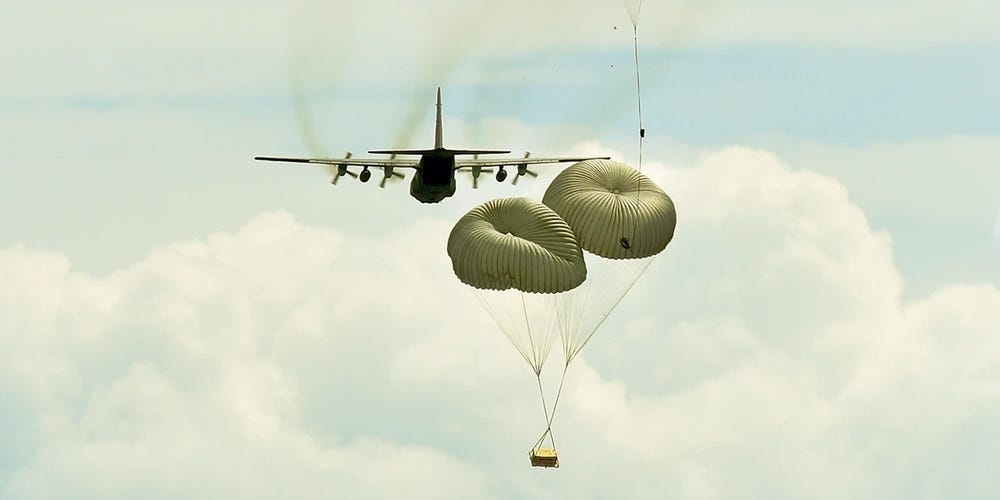
The first of its kind
The first C-130 Transport flying back from its early flight paces over California’s Mojave Desert.
Bettmann/Getty Images
The C-130 Hercules was created to address deficiencies in the US Air Force fleet during the Korean War.The US military recognized a need for a plane that could take off from shorter runways and transport more soldiers and supplies on and off the battlefield. At the time, no plane could simultaneously achieve all the objectives the Air Force needed.The Air Force asked for designs for a plane capable of hauling large, bulky equipment over long distances, landing in tight spaces, slowing to 125 knots for paratroop drops, and flying with one engine if needed.Boeing, Douglas, and Fairchild submitted models for this new type of plane, but Lockheed’s submission ultimately won the bid in 1951. To this day, Lockheed still makes C-130 models and their upgraded versions.In a 2017 interview with Popular Mechanics, Lockheed Martin historian Jeff Rhodes said the design team took the largest piece of equipment the Army needed to transport, “drew a circle around it, and that set the diameter of the fuselage.””The basic C-130, aft of the cockpit and before the ramp, is the length of a railroad boxcar,” Rhodes said.Three years later, the YC-130, a prototype of the later C-130, made its first test flight from Burbank, California, to Edwards Air Force Base in Kern County, California. It took off after using only 855 feet of runway, a fraction of the 5,000-foot ground roll needed by most other planes its size.The US Air Force has not stopped production of the C-130 class plane since it was invented in the 1950s, making it the longest continuous aircraft production run in history.






